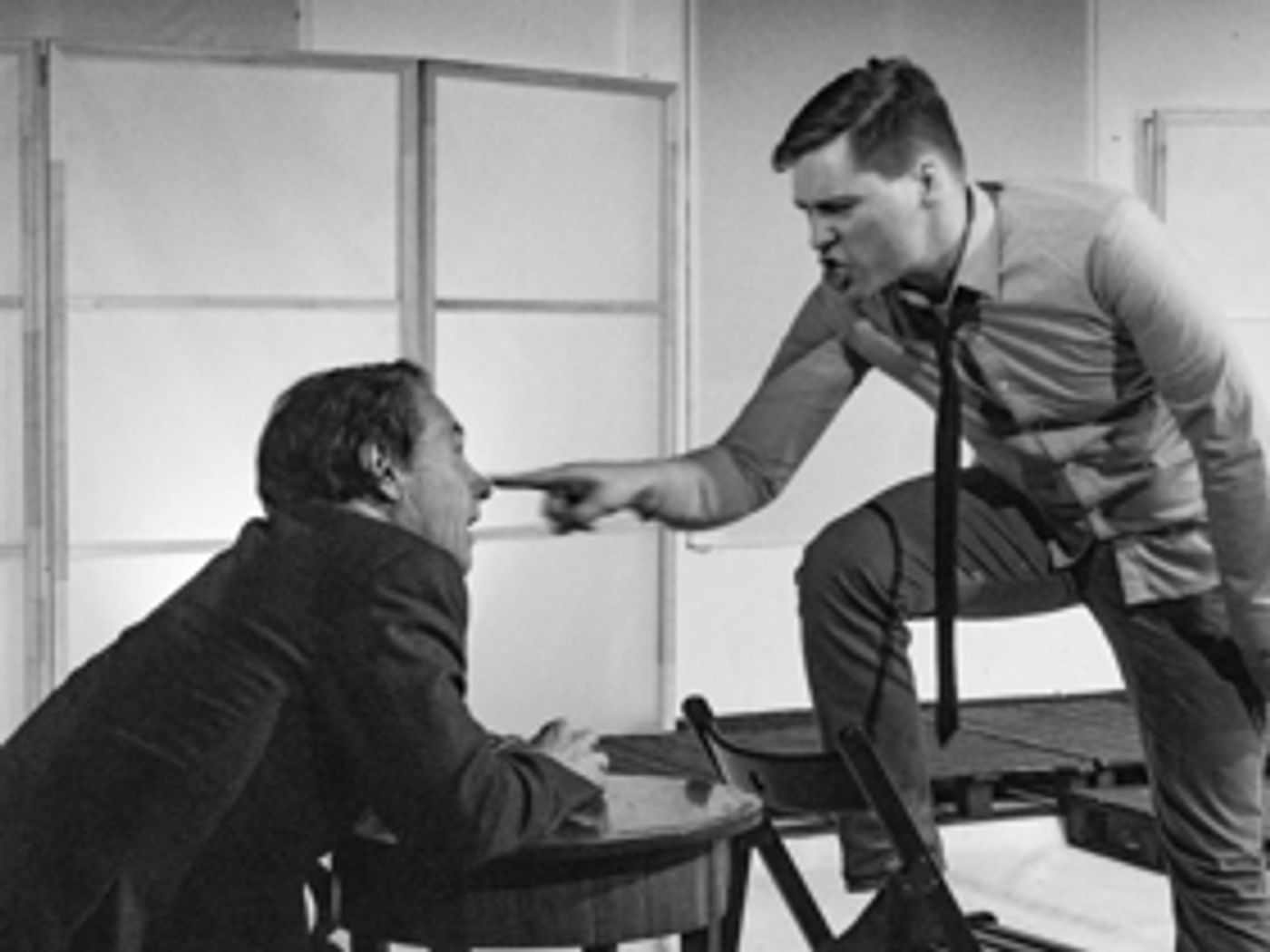Review: SUPPER at CATNIP Divadlo

SUPPER by Phinneas Kiyomura
Presented by CATNIP Divadlo at Studio Savec, Prague
Directed by Aleksandr Krasny
With: James Astles, Bob Boudreaux, Nhung Dangová, Josef Guruncz, and Vit Spanhel.
When is an American play too American?
This is a question I asked myself after watching the Prague premiere of Phinneas Kiyomura's play 'Supper'.
CATNIP (which stands for Contemporary American Theater Now In Prague) has mined this territory before. Their productions of 'Glengarry Glen Ross' and 'A Streetcar Named Desire' were both well done and well received. But Phinneas Kiyomura is no David Mamet or Tennessee Williams.
'Supper' had previously been presented in Los Angeles, where Mr. Kiyomura is based, and this tale of four brothers trapped in a self-destructing prism of a family contains enough kernels of a drama to fill an entire silo. There's Freddy, obviously if not openly gay, who's about to be married to a Japanese woman. There's Charlie, Freddy's abusive older brother, desperately trying to hold on to his share of the family fortune. There's Billy and David, supposedly twins, caught in Freddy and Charlie's crossfire and stashing a few secret weapons of their own.
There's a samurai sword, a Japanese screen with ghostly dancing figures, and the titular supper, a sorry meal of gristle and a single carrot that has it's own not-so-subtle part to play in the story.
In short, 'Supper' is one part Mamet, one part Williams. Unfortunately, this adds up to less than the sum of its parts.
The cast is likeable and enthusiastic while breezing through the comedic scenes, and they are moderately grounded in reality when the cursing and violence picks up, but huge stretches of the play make little sense.
One big question: why is this drama set in Japan? Other than the playwright's Japanese heritage, nothing about the story suggests a reason for the setting. The characters could have flown to Seattle rather than Kyoto for the wedding dinner and at least avoided the jet lag. There's that sword, but as dramatic devices, swords and knives are relatively interchangeable. An ordinary switchblade would have sufficed.
The character of Naomi, the Japanese woman is, at different points in the play, a ninja, a seductress, or a catatonic patient. If she is marrying Freddy for his money, a clearer line of intent is needed. And the Kuroki - the Japanese stagehands who greet the audience, manipulate the props, and play the ghosts - seem to be dropped into actions which otherwise have no need for them.
There is a wide variety of music -- Prokofiev's The Sorcerer's Apprentice', Johnny Cash, the theme from 'The Andy Griffith Show' - but none of it is Japanese, and none of it has any connection with the themes of the play or the action on the stage.
Perhaps the most fatal error of all, from a dramaturgic point of view: when you stab a major character to death, the play should be nearly over. To extend the drama with long speeches and mad scenes (this production does both) merely pushes the audience's patience to the breaking point.
Spoiler alert: the canon of American plays really has room for only one instance of cannibalism -- 'Suddenly Last Summer'. If you are going to veer this close to Tennessee Williams, Mr. Kiyomura, please apply a bit more finesse.
Reader Reviews
Videos


